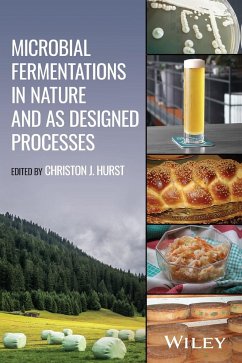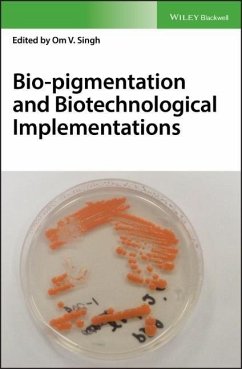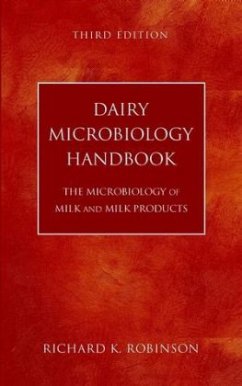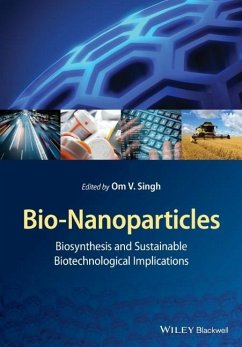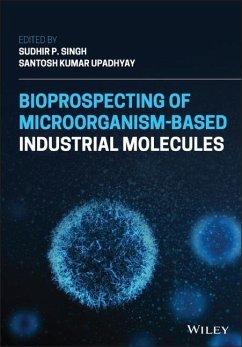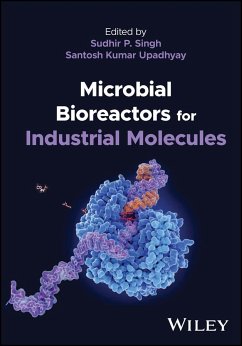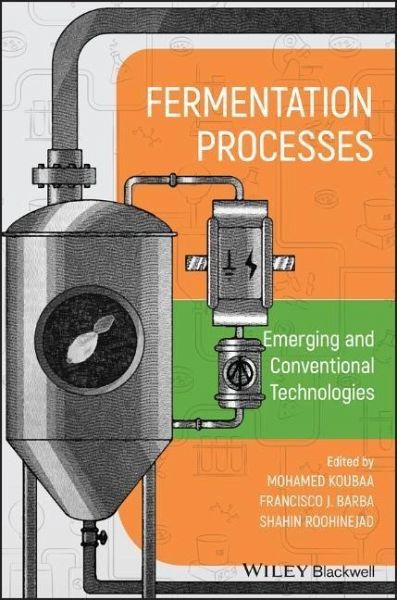
Fermentation Processes: Emerging and Conventional Technologies
Versandkostenfrei!
Versandfertig in über 4 Wochen
183,99 €
inkl. MwSt.
Weitere Ausgaben:

PAYBACK Punkte
92 °P sammeln!
Explores the use of conventional and novel technologies to enhance fermentation processesFermentation Processes reviews the application of both conventional and emerging technologies for enhancing fermentation conditions, examining the principles and mechanisms of fermentation processes, the microorganisms used in bioprocesses, their implementation in industrial fermentation, and more. Designed for scientists and industry professionals alike, this authoritative and up-to-date volume describes how non-conventional technologies can be used to increase accessibly and bioavailability of substrates...
Explores the use of conventional and novel technologies to enhance fermentation processes
Fermentation Processes reviews the application of both conventional and emerging technologies for enhancing fermentation conditions, examining the principles and mechanisms of fermentation processes, the microorganisms used in bioprocesses, their implementation in industrial fermentation, and more. Designed for scientists and industry professionals alike, this authoritative and up-to-date volume describes how non-conventional technologies can be used to increase accessibly and bioavailability of substrates by microorganisms during fermentation, which in turn promotes microbial growth and can improve processes and productivity across the agri-food, nutraceutical, pharmaceutical, and beverage industries.
The text begins by covering the conventional fermentation process, discussing cell division and growth kinetics, current technologies and developments in industrial fermentation processes, the parameters and modes of fermentation, various culture media, and the impact of culture conditions on fermentation processes. Subsequent chapters provide in-depth examination of the use of emerging technologies--such as pulsed electric fields, ultrasound, high-hydrostatic pressure, and microwave irradiation--for biomass fractionation and microbial stimulation. This authoritative resource:
_ Explores emerging technologies that shorten fermentation time, accelerate substrate consumption, and increase microbial biomass
_ Describes enhancing fermentation at conventional conditions by changing oxygenation, agitation, temperature, and other medium conditions
_ Highlights the advantages of new technologies, such as reduced energy consumption and increased efficiency
_ Discusses the integration and implementation of conventional and emerging technologies to meet consumer and industry demand
Offers perspectives on the future direction of fermentation technologies and applications Fermentation Processes: Emerging and Conventional Technologies is ideal for microbiologists and bioprocess technologists in need of an up-to-date overview of the subject, and for instructors and students in courses such as bioprocess technology, microbiology, new product development, fermentation, food processing, biotechnology, and bioprocess engineering.
Fermentation Processes reviews the application of both conventional and emerging technologies for enhancing fermentation conditions, examining the principles and mechanisms of fermentation processes, the microorganisms used in bioprocesses, their implementation in industrial fermentation, and more. Designed for scientists and industry professionals alike, this authoritative and up-to-date volume describes how non-conventional technologies can be used to increase accessibly and bioavailability of substrates by microorganisms during fermentation, which in turn promotes microbial growth and can improve processes and productivity across the agri-food, nutraceutical, pharmaceutical, and beverage industries.
The text begins by covering the conventional fermentation process, discussing cell division and growth kinetics, current technologies and developments in industrial fermentation processes, the parameters and modes of fermentation, various culture media, and the impact of culture conditions on fermentation processes. Subsequent chapters provide in-depth examination of the use of emerging technologies--such as pulsed electric fields, ultrasound, high-hydrostatic pressure, and microwave irradiation--for biomass fractionation and microbial stimulation. This authoritative resource:
_ Explores emerging technologies that shorten fermentation time, accelerate substrate consumption, and increase microbial biomass
_ Describes enhancing fermentation at conventional conditions by changing oxygenation, agitation, temperature, and other medium conditions
_ Highlights the advantages of new technologies, such as reduced energy consumption and increased efficiency
_ Discusses the integration and implementation of conventional and emerging technologies to meet consumer and industry demand
Offers perspectives on the future direction of fermentation technologies and applications Fermentation Processes: Emerging and Conventional Technologies is ideal for microbiologists and bioprocess technologists in need of an up-to-date overview of the subject, and for instructors and students in courses such as bioprocess technology, microbiology, new product development, fermentation, food processing, biotechnology, and bioprocess engineering.




